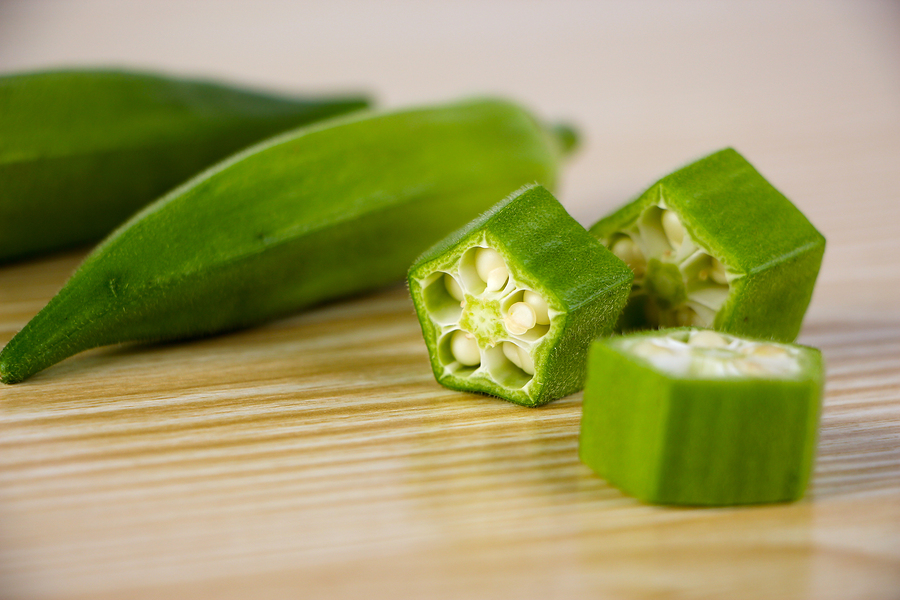- Make It Yourself Lavender Heart-Shaped Bath Bombs!
- 20 Things You Never Knew About “Down There”
- 12 Best Foods For Those Suffering From Arthritis Pain
- 12 Personal Hygiene Mistakes Almost Everyone Makes (Mom Never Told You About #4!)
- 15 Medicinal Plants And Herbs From The Cherokee People
- 12 Mind-Blowing Benefits Of Drinking Coconut Water During Pregnancy
- 12 Outstanding Winter Foods That Won’t Fatten You Up Like A Christmas Turkey
The Health Benefits Of Okra

Photo credit: bigstock.com
It is common knowledge that regular vegetable consumption is essential for those who want to stay healthy. When most people think of vegetables, common ones like carrots, beets and sweet potatoes come to mind as well as cruciferous (leafy green) veggies like lettuce and spinach. But “eating clean” can get dull after a while. Eventually, everyone gets bored of eating the same old things all the time. Fortunately, there are some less well-known vegetables that can add some variety to your diet and give you essential nutrients as well. One great example is okra.
What Is Okra?
Okra is a great-tasting but somewhat odd vegetable. The vegetable comes in a pod form and grows from a flowering plant called Abelmoschus esculentus. The seed-filled pods, about 3 inches long, resemble a cross between a small cucumber and starfruit, and have a taste similar to an eggplant.
If you’re from the Southern United States, you’re probably already familiar with this delicious vegetable, which has been a traditional ingredient in Southern cooking for centuries. It is unknown exactly where okra originates from, but it is used in traditional cooking in places as far apart as China, Africa, the Middle East, and India, as well as the American South.
Okra seeds can also be used as a coffee substitute.
Okra in Traditional and Holistic Medicine
Early in history, people began to notice health benefits from consuming okra, and it was adopted for medicinal purposes in many different cultures. In Malaysia, it was used as a folk remedy for syphilis. Okra leaves have also been used for pain relief, and as a traditional treatment for difficulty urinating.
Modern practitioners of holistic medicine use okra to treat acid reflux disease, lung inflammation, atherosclerosis, and cataracts.
Continue to Page 2

Photo credit: bigstock.com
What Are the Specific Health Benefits of Okra?
Okra is a good source of vitamins and minerals. A 1 cup (100 gram) serving of okra only has around 80 calories, and contains plenty of B vitamins like thiamin, niacin and B6, which provide energy, as well as 43 percent of the daily recommended amount of vitamin C, which strengthens the immune system. It is also a good source of vitamin A, which is essential for ensuring healthy vision.
One vitamin that is somewhat difficult to get is vitamin K. The same 1 cup serving of okra offers 44 percent of the daily recommended value of this vital nutrient, which plays a role in strengthening bones.
Okra also offers minerals like calcium, manganese, magnesium, copper and phosphorous, as well as flavonoid antioxidants like lutein and beta-carotene.
Okra helps reduce blood pressure and helps keep you hydrated. In addition to the minerals listed above, okra contains potassium. This mineral helps counteract the effects of sodium, which is commonly associated with elevated blood pressure levels. Sodium is also linked to dehydration. Since potassium balances out sodium levels in the body, it can help maintain proper fluid levels. Potassium also helps to lower blood pressure, reducing the risk of cardiovascular problems like stroke or heart attack.
It helps with digestion. Okra is a good source of fiber, which helps ensure gastrointestinal health. Many people don’t eat enough fruits and vegetables, and fail to get the recommended daily value of fiber. One cup of okra contains 4.9 grams, around 20 percent of the fiber you need in a day. Fiber deficiency leads to constipation, gas, cramping, and bloating. But like any nutrient, too much of a good thing can lead to problems, mainly diarrhea. Here, however, is where okra is different from most dietary fiber sources. Because of its unique consistency, it can actually prevent diarrhea, since it leads to thicker stool.
Okra gives you radiant skin. Remember the vitamin A we mentioned earlier? It’s great for your skin too! The vitamin A antioxidants protect skin cells from free radical damage and reduce the appearance of the signs of aging, acne and more.
READ ALSO: Top 10 Healthy Healing Benefits of Eating Pumpkins and Pumpkin Seeds
Okra makes a great dietary addition for anyone who wants to shake up their vegetable intake and try something new. Its mild taste and health benefits make okra a no-brainer. Pick some up today and learn what millions of people from the Deep South to South China have known for centuries: Okra is light, healthy and most importantly, delicious.
References:

































